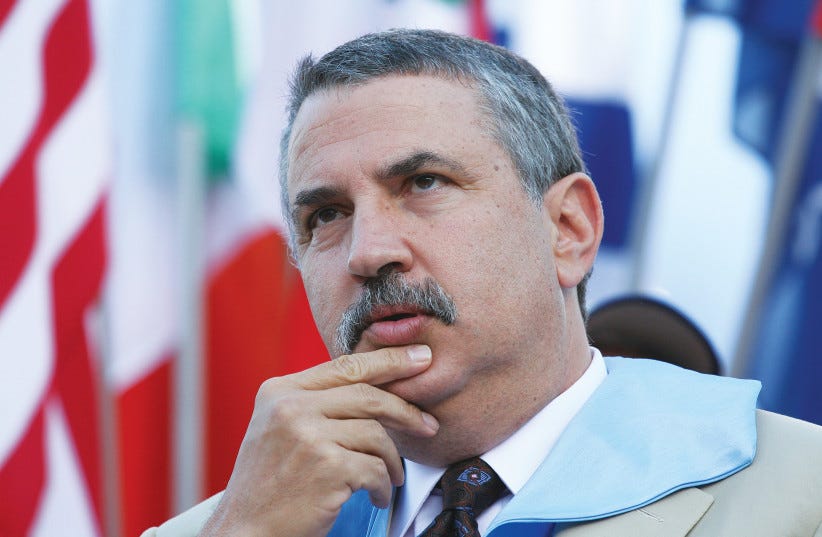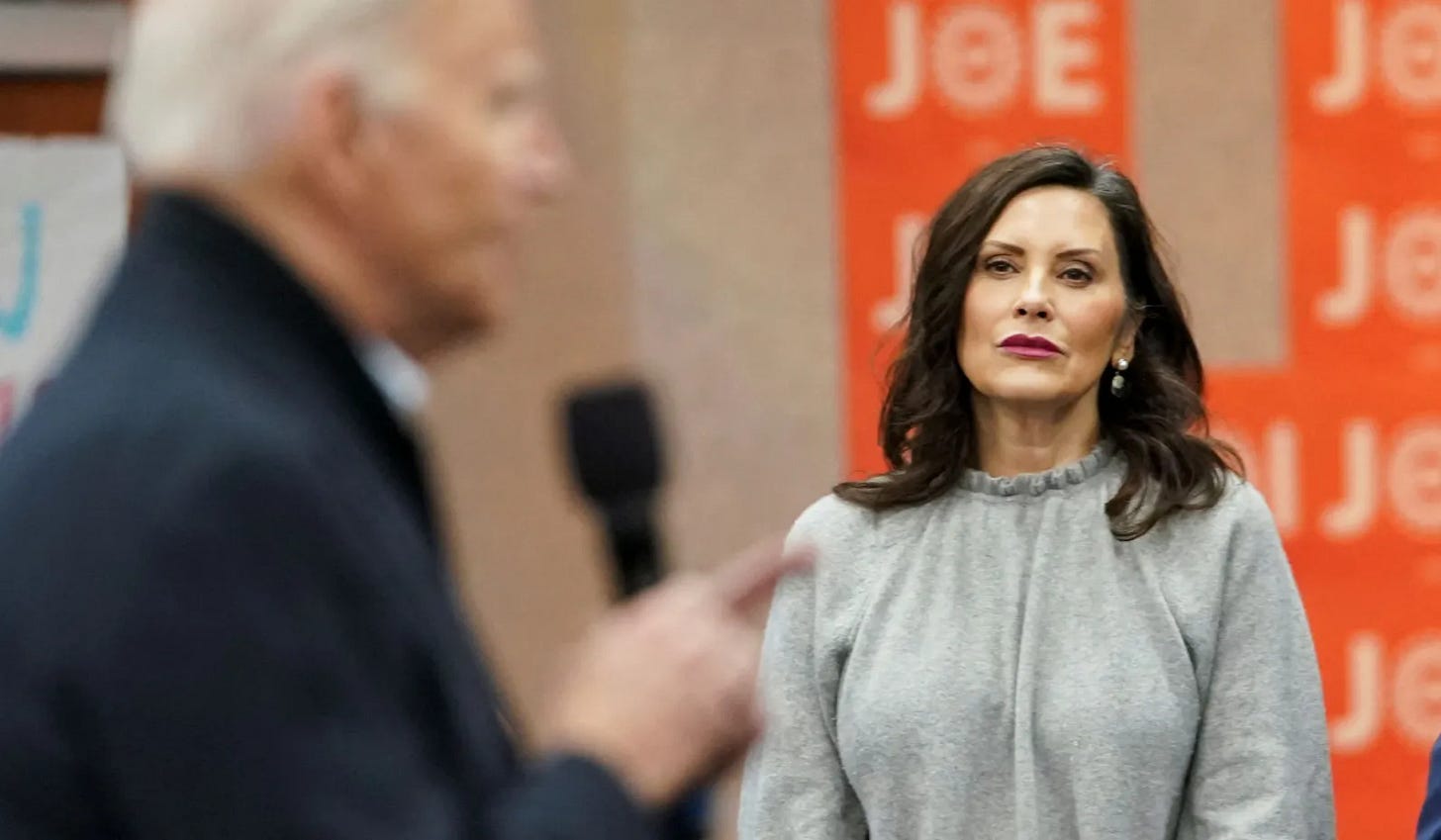In February 1968, CBS anchor Walter Cronkite editorialized on the air against the Vietnam war. After watching the broadcast, President Lyndon B. Johnson supposedly said, “If I’ve lost Cronkite, I’ve lost Middle America.” And then, a month later, LBJ announced that he wouldn’t seek reelection.
Well, it seems LBJ did not in fact utter those words – which have been repeated in various forms over the years – and he never even saw that Cronkite program. Or so a revisit to the myth by journalism academic W. Joseph Campbell found. Johnson at the time was in Austin, Texas, celebrating the birthday of his longtime friend, Gov. John Connally, Campbell recounted.
“The Cronkite program was neither decisive nor pivotal to his thinking on Vietnam,” Campbell maintained. He suggested that the media exaggerated their role in affecting a president’s thinking.
I’m reminded of this now, after many journalism outlets and pundits have called on President Joe Biden to throw in the towel on the election after his disappointing debate performance. They want him to yield the Democratic nomination to someone – anyone – who could put on a better show.
The key question: will the media angst make a difference to the president?
“The president appeared on Thursday night as the shadow of a great public servant,” The New York Times editorialized. “He struggled to explain what he would accomplish in a second term. He struggled to respond to Mr. Trump’s provocations. He struggled to hold Mr. Trump accountable for his lies, his failures and his chilling plans. More than once, he struggled to make it to the end of a sentence.”
Echoing that, Times columnist and reported Biden-whisperer Thomas Friedman called on those closest to the president to persuade him to quit the race. “The Biden family and political team must gather quickly and have the hardest of conversations with the president, a conversation of love and clarity and resolve,” Friedman wrote. “To give America the greatest shot possible of deterring the Trump threat in November, the president has to come forward and declare that he will not be running for re-election and is releasing all of his delegates for the Democratic National Convention.”
More predictably – and nastily – The Wall Street Journal said the president looked like “a feeble man” with no business running. “Mr. Biden lost the debate in the first 10 minutes as he failed to speak clearly, did so in a weak voice, and sometimes couldn’t complete a coherent sentence,” the paper said. “His blank stare when Donald Trump was speaking suggested a man who is struggling to recall what he has been prepped for weeks to say, but who no longer has the memory to do it.”
Chiding those who encouraged or tolerated the president’s choice to run again, the WSJ accused such supporters of failing to heed warning signs of the president’s deterioration. “It was clearly a selfish act for him to seek a second term,” the editorial said. “But did they really think they could hide his decline from the public for an entire election campaign?”
Labeling Biden’s debate performance an “unmitigated disaster,” WSJ columnist Peggy Noonan argued that Democrats must “admit what the rest of the country can see and has long seen, that Mr. Biden can’t do the job. They have to stop being the victim of his vanity and poor judgment, and of his family’s need, and get themselves a new nominee.”
For my part, I give the president high marks on substance – indeed, despite his shortcomings, his mastery of many of the details he recounted was impressive. Regrettably, however, he seemed at times like a man desperate to recall and regurgitate those details — like someone grasping for lost memories. Certainly, he lost on style, with too many slips and too much confusion. And, as we learned way back in the Kennedy-Nixon debates, style and appearance make all the difference.
But can a man who fought so hard and long to attain the prize Biden did now give it up? Does Biden have enough self-awareness to pack it in?
It’s possible that some of the media outpouring will unsettle Biden enough to help him do so, but we are in uncharted territory here. History offers little guidance.
Despite the Cronkite myth, the media’s desertion of LBJ, it seems now, had little influence on his prosecution of the Vietnam war; it dragged on through President Nixon’s term years later. Moreover, it’s likely that LBJ’s decision to quit the election race was less influenced by the media than by impressive threats from challengers Sen. Eugene McCarthy and Sen. Robert F. Kennedy.
For his part, Biden in the spring had a sole credible challenger. But that man, Minnesota Rep. Dean Phillips, racked up pallid results that persuaded him to drop out and endorse the president in early March. Before getting into the race, Phillips had called for a “moderate governor” to challenge Biden, who he said could not defeat Trump.
Now, if the media and pundits are correct, Democrats may have to scramble to a) persuade Biden to quit and b) find a credible challenger to Trump. Both seem like herculean tasks, complicated by the short time frame left.
It’s not that there would be a shortage of pretenders. Indeed, it seems likely that a free-for-all would precede the party’s convention, slated for Aug. 19-22 in Chicago. The names being vaunted include Vice President Kamala Harris, Gov. Gretchen Whitmer of Michigan, Gov. Josh Shapiro of Pennsylvania, Gov. Gavin Newsom of California, Gov. J.B. Pritzker of Illinois and Gov. Andy Beshear of Kentucky. Other potential candidates include Pete Buttigieg, the secretary of transportation, and Sens. Amy Klobuchar of Minnesota and Cory Booker of New Jersey.
“If Democrats can somehow work through all of this, someone like Gretchen Whitmer would be a much tougher opponent for Trump on paper,” National Review editor Rich Lowry argued. “She’s a young, relatively popular governor in the key swing state of Michigan. She wouldn’t have to answer directly for any of Biden’s failures and has a history of presenting herself in campaigns as a non-ideological Democrat. ‘Fix the damn roads’ was her slogan when she first ran for governor.”
Would there be enough time for Whitmer or any of the others to mount a successful effort to knock Trump aside? Would they fracture the party in a desperate battle royal, carving one another up while Trump bides his time, taking potshots at whoever seems the most likely to emerge?
If Biden can be persuaded to step aside, it’s possible that the ambitious folks who could succeed him would do one healthy thing: they would deprive Trump of the media oxygen he so desperately depends on. Their fight, should it materialize, would dominate the headlines, superseding such things as his veep choice.
But the Dems would need to choose wisely. Not only would they need a person of substance, but that person must be able to skewer Trump while avoiding descending to his level. As many observers – even those at the Wall Street Journal – reported, Trump’s debate performance was filled with misstatements that he routinely echoes on the campaign trail. Highlighting them would just be the beginning for a credible Trump challenger (while Trumpists may not care about facts, reasonable voters might).
Making the case for taking Biden’s mantle would require passion, thought and vitality. It’s not impossible for those potential candidates to bring such qualities to bear, but it’s a tall order and time’s a wastin.’ At the moment, that job seems like a far easier task, though, than would be needed for Biden to recover from his debate disaster. Going forward, every appearance now by the diminished president would likely just deepen the hole he’s in.






